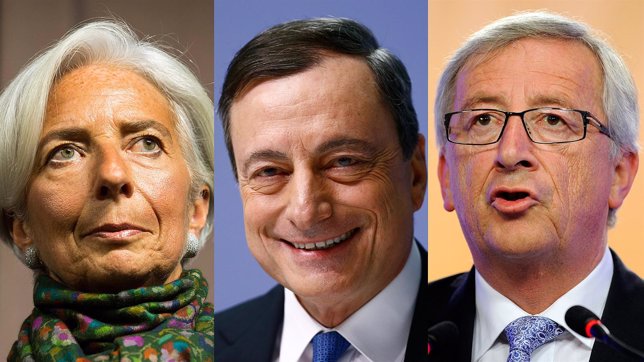Juncker: La troika atentó contra la "dignidad" de Grecia, Portugal e Irlanda

Actualizado 18/02/2015 17:59:49 CET
El presidente de la Comisión Europea,
Jean-Claude Juncker, ha dicho este miércoles que la troika atentó contra
la "dignidad" de Grecia, Portugal e Irlanda durante la gestión de los
rescates de estos países y ha vuelto a criticar que se trata de una
institución "poco democrática" que debe revisarse.
"La troika es poco democrática, le falta legitimidad democrática y
deberemos revisarlo cuando llegue el momento", ha dicho Juncker durante
una comparecencia ante el Comité Económico y Social Europeo, en la que
ha aclarado que quiere que tanto el Fondo Monetario Internacional como
el Banco Central Europeo y la Comisión continúen en su estructura."He discutido con muchos interlocutores que tenían que tratar con la troika, que me decían siempre que se enfrentaban no a políticos sino a altos funcionarios. No critico a los altos funcionarios, pero no se coloca a un alto funcionario ante un primer ministro o un ministro de Finanzas o al jefe negociador de un país, no es su nivel. Hay que poner en frente a un comisario o a un ministro que tenga la autoridad del Eurogrupo", ha alegado el presidente de la Comisión.
"Hemos pecado contra la dignidad de los pueblos, especialmente en Grecia y Portugal y muy a menudo en Irlanda. Yo era el presidente del Eurogrupo y parezco estúpido al decir esto, pero hay que sacar las lecciones de la historia y no repetir los mismos errores", ha indicado Juncker.
El político luxemburgués ha eludido decir nada sobre la situación en Grecia alegando que está en "negociaciones" con el Gobierno de Atenas, aunque ha dicho que la cuestión se ha discutido "durante horas" en el colegio de comisarios. Y ha criticado que la anterior Comisión de José Manuel Durao Barroso "no se hablaba en absoluto" de Grecia porque "se fiaban ciegamente de la troika".
Juncker ha indicado que sus críticas a la troika "no restan nada a la necesidad que hay de consolidar a corto, medio y largo plazo nuestras finanzas públicas porque no podemos vivir a expensas de las generaciones futuras" ni a "la necesidad de emprender reformas estructurales que aumenten el potencial de crecimiento de Europa".
Europapress
http://www.europapress.es/economia/macroeconomia-00338/noticia-economia-macro-juncker-dice-troika-atento-contra-dignidad-grecia-portugal-irlanda-20150218174115.html



